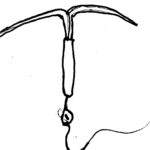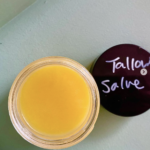As we often hear in our classes, one of the biggest risk factors for a variety of chronic, debilitating diseases, from diabetes to ADHD, is low socioeconomic status. Sadly, even in a country like Canada, in the year 2012, we see that socioeconomic status continues to be a vicious cycle that entraps its victims in a web of dis-empowerment when it comes to issues concerning health.
One of the reasons that I personally decided to study naturopathic medicine was the attraction of the sustainability of a whole body approach to health. Our remedies (homeopathy, acupuncture, botanical medicine, diet & lifestyle changes and mind-body medicine, to name a few) are generally widely accessible and cost very little to administer. As part of our philosophy we embrace our role as healthcare providers to engage patients by empowering them in matters of their own health through patient education and patient-centred care. For these reasons, our model of medicine is perfectly aligned with a community-based approach to health.
However, as student debt increases and we leave school to embark on entrepreneur-like ventures, I feel that the clinical business models that we are taught to pursue disregard the potential that our profession has for community outreach. We are provided with business models that focus on making money and paying off debt rather than providing a service to society. We are taught the skills to make $80,000 after graduation, but not how to reach 80,000 patients.
Despite this, we still see inspiring alternative healthcare practitioners who serve as shining examples of socially-oriented business owners. They head community-based initiatives that are taking place within the realms of our profession: anything from community acupuncture to mind-body workshops, to opening clinics in developing countries or to developing programs in marginalized neighbourhoods and regions across Canada.
As students at CCNM who are invested in the ideals of a community-based preventive approach to medicine and to embracing empowerment models in health, we would like to learn more about the practitioners who have succeeded in implementing these programs and thus, empowering the greater population with the potential for a life of sustainable health and well-being. Our aim is that, upon graduation we might take the reins and delve into similar projects ourselves.
We would also like to promote awareness around the need to reach the larger community with naturopathic medicine, with the intention of generating passion for the cause among CCNM students and faculty, in hope of creating more opportunities in the field of community-based medicine.
So, how do you succuss poverty?
Join us for a community health care panel event on Wednesday, November 14th from 6 – 8 pm in Classroom 5 at the Canadian College of Naturopathic Medicine!







Looking forward to it!
Me too! I’m happy that you’re coming!